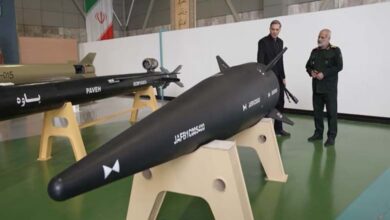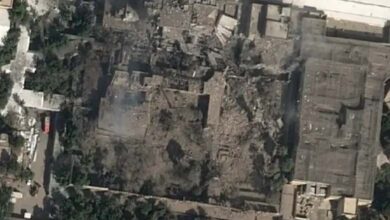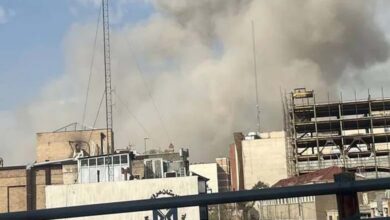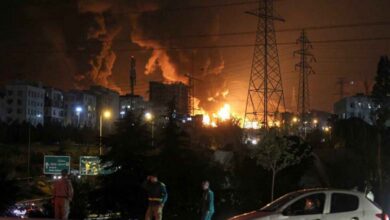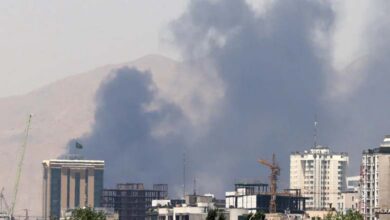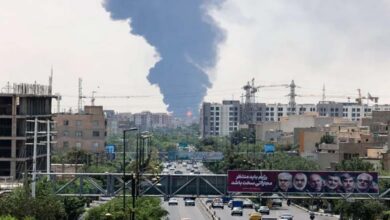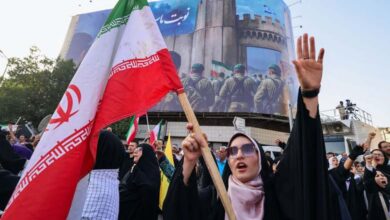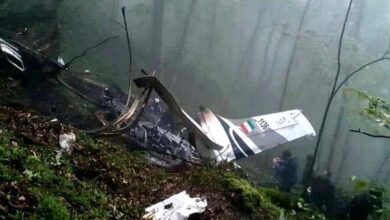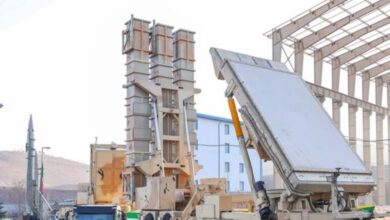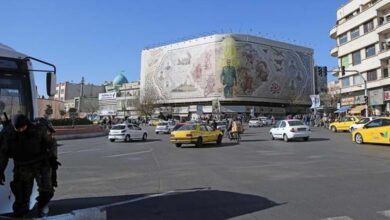Iranians Choose Their President Between Reformist and Hardline Conservative
Opposition figures inside Iran and in the diaspora are calling for a boycott of the elections, considering that the conservative and reformist camps are two sides of the same coin.
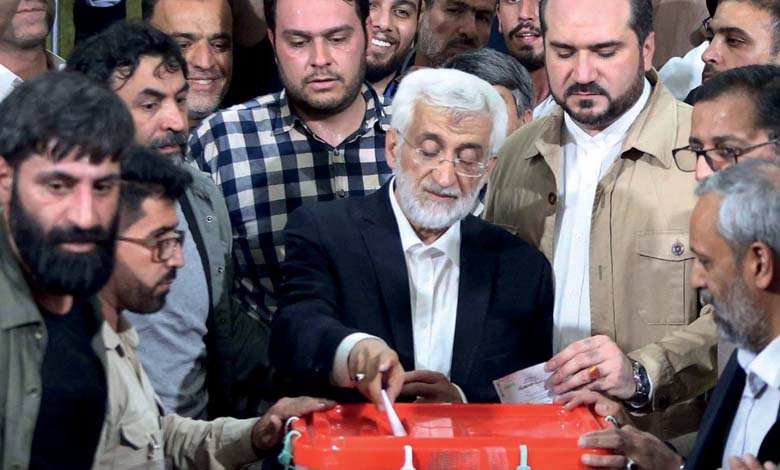
Iranian voters are casting their votes today, Friday, in the second round of presidential elections, where reformist candidate Masoud Behkishian, advocating for openness to the West, faces off against the strict conservative former nuclear negotiator Saïd Jalili, known for his hardline stances against the West.
These elections, whose first round took place on June 28, were hastily organized to select a successor to Ibrahim Raisi, who died in a helicopter accident on May 19.
This second round is closely watched abroad, as Iran, a major power in the Middle East, is at the heart of many geopolitical crises, from the war in Gaza to the nuclear issue, which has been a point of friction between the Islamic Republic and the West for years.
These elections come amid widespread popular discontent, exacerbated by the deteriorating economic conditions due to Western sanctions reimposed on Iran.
In the first round, voter turnout was 39.92% out of a total of 61 million eligible voters, the lowest since the creation of the Islamic Republic 45 years ago, compared to nearly 80% in the 1980s and 1990s.
In the second round, voters will choose between Behkishian (69), who advocates for openness to the West, and Jalili (58), known for his inflexible positions toward Western powers.
In the first round, Behkishian received 42.4% of the vote compared to Jalili’s 38.6%, while another conservative candidate, Mohammad Baqer Qalibaf, came in third.
Behkishian was relatively unknown when he entered the race, but he managed to take the lead by capitalizing on divisions among conservatives who failed to unite behind a single candidate.
Qalibaf has called on his supporters to vote for Jalili in the second round, while Behkishian enjoys the support of former reformist presidents Mohammad Khatami and moderate Hassan Rouhani.
However, opposition figures inside Iran and in the diaspora have called for a boycott of the elections, considering the conservative and reformist camps as two sides of the same coin.
Behkishian, a surgeon and former Health Minister from 2001 to 2005 under President Khatami, is known for his outspoken criticisms of the authorities during the widespread protests that shook Iran following the death of young Mahsa Amini in September 2022, who was arrested for not adhering to strict Islamic Republic dress codes.
During Monday night’s televised debate, the two opponents discussed economic hardships facing the country, international relations, declining voter turnout, and government-imposed internet restrictions.
Behkishian stated that “people are not satisfied with us,” citing underrepresentation of women and religious and ethnic minorities in politics.
He added that “when 60% of the population does not participate (in elections), it means there is a problem” with the government.
Jalili, on the other hand, expressed concern about the low voter turnout without blaming the government. However, Supreme Leader Ali Khamenei, who called on voters to participate in the election on Wednesday, said it was “completely wrong to believe that those who did not vote in the first round are against the system.”
Economically, Jalili claimed during the debate that he could achieve 8% growth, compared to 5.7% from March 2023 to March 2024. He also reiterated his opposition to any rapprochement between Iran and Western countries.
Jalili, who served as nuclear negotiator from 2007 to 2013, strongly opposed the eventual deal reached between Iran and major powers, including the United States, which imposed strict restrictions on Iranian nuclear activities in exchange for easing sanctions.
Behkishian, meanwhile, announced that he would prioritize reviving the deal frozen since Washington’s withdrawal in 2018, a unilateral decision accompanied by the reinstatement of sanctions against Tehran.
Regardless of the election outcome, its impact on the country’s direction will be limited as the president in Iran has limited powers. The primary responsibility for governance lies with the Supreme Leader, considered the head of state, while the president is responsible for implementing major policy guidelines set by the Supreme Leader.
In Tehran, 42-year-old chef Jawad Abdel Karim told Agence France-Presse that he would vote on Friday but “I still don’t know for whom,” hoping that the new government would slow inflation and stabilize the national currency.
Meanwhile, 75-year-old retiree Fatima said she would not vote because “the two candidates (…) do not care at all about the people.” Ali, a 24-year-old student who preferred not to disclose his full name, said the best choice for him was Behkishian because he “is capable of opening the country to the rest of the world.”
The reformist candidate called for “constructive relations” with the United States and European countries to “take Iran out of its isolation.”
In contrast, Jalili reaffirmed his strict opposition to the West, believing that Tehran does not need to revive the nuclear deal that imposed severe restrictions on its nuclear activities in exchange for easing sanctions imposed on it. He said the deal “violated Tehran’s red lines” by accepting “unusual inspections of Iranian nuclear sites.”
At a campaign rally Wednesday night, 40-year-old Maryam Al-Naroui said Jalili represented “the best choice for the country’s security.”
Throughout his professional career, Jalili has succeeded, with the Supreme Leader’s trust, in holding key positions within the regime. Currently, Jalili is one of the Supreme Leader’s representatives on the Supreme National Security Council, the country’s highest security body.
The results of the second round will be announced at noon on Saturday.


